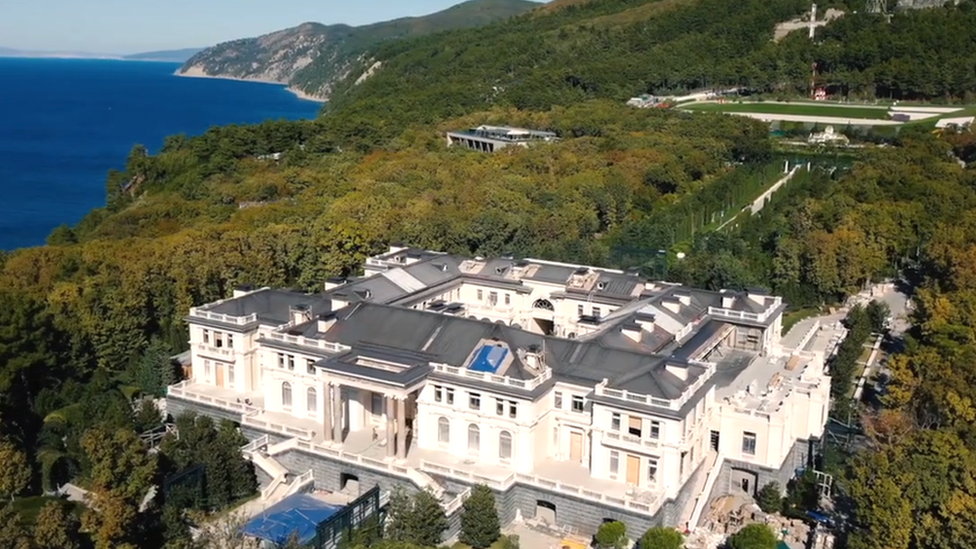Putin critic Navalny could 'die within days', say doctors
- Published
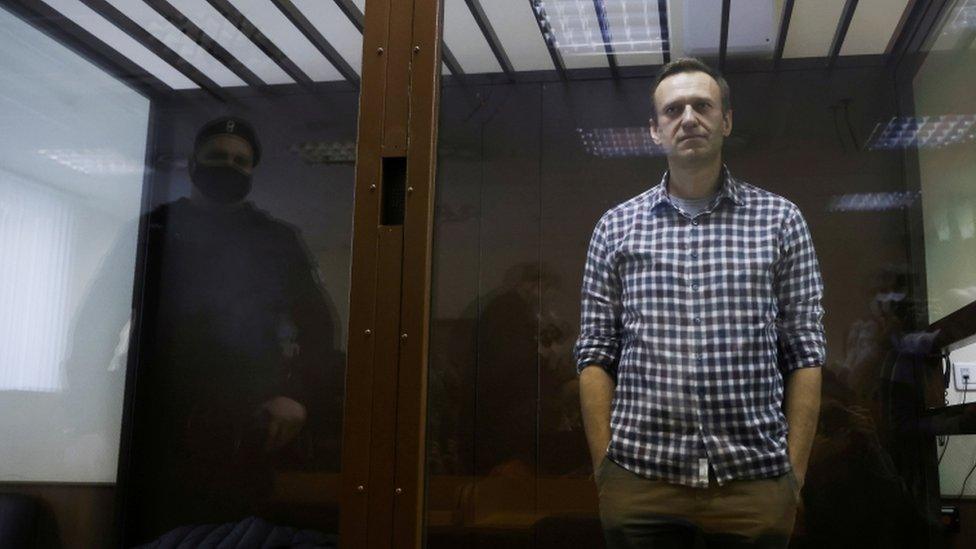
Vladimir Putin's most prominent critic, Alexei Navalny, was jailed in February
Doctors for the jailed Russian opposition activist Alexei Navalny say he "will die within the next few days" if not given medical attention.
Doctors say recent blood test results indicate he could suffer cardiac arrest or kidney failure at any moment.
Navalny has been on a hunger strike for 19 days, to demand proper treatment for acute back pain and leg numbness.
The Russian ambassador to the UK has said that Mr Navalny will not be allowed to die in prison.
A prominent critic of President Vladimir Putin, Mr Navalny was jailed in February for old embezzlement charges.
Four doctors, including his personal physician, Anastasia Vasilyeva, have written to prison officials to ask for permission to see him urgently.
In the letter, which Dr Vasilyeva posted on Twitter, the experts said Alexei Navalny's potassium had reached "critical levels".
Allow X content?
This article contains content provided by X. We ask for your permission before anything is loaded, as they may be using cookies and other technologies. You may want to read X’s cookie policy, external and privacy policy, external before accepting. To view this content choose ‘accept and continue’.

"This means both impaired renal function and that serious heart rhythm problems can happen any minute," it explained.
Having blood potassium levels higher than 6.0 mmol (millimoles) per litre usually requires immediate treatment. Navalny's blood test results, which were obtained by his lawyers, showed his were at 7.1, the letter said.
The doctors have urged prison officials to let them examine Navalny immediately, "taking into account the blood tests and his recent poisoning".
Russia's ambassador to the UK Andrei Kelin: "He (Alexei Navalny) will not be allowed to die in prison"
In an interview with the BBC's Andrew Marr recorded on Friday but aired on Sunday, Russia's ambassador to Britain, Andrei Kelin, said that Mr Navalny was not in danger.
"Of course he will not be allowed to die in prison, but I can say that Mr Navalny behaves like a hooligan absolutely in trying to violate every rule that has been established," he said, adding that Mr Navalny was attempting "to attract attention".
Mr Kelin added that Mr Navalny, who is serving a two-and-a-half-year jail term, would be released from earlier if "he will behave normally".
Mr Navalny, 44, nearly died in August 2020 when he was poisoned with the chemical nerve agent, Novichock. He accuses President Vladimir Putin of ordering the poisoning, which the Kremlin denies.
Navalny's wife Yulia said her husband now weighed 76kg (168 pounds), which is down 9kg since starting his hunger strike, according to AP.
Alexander Polupan, who was one of the doctors to treat Navalny after the poisoning, external, posted an image of his blood test results, and said they were an "absolute indication" that he needed urgent medical care or he would "die within the next days".
Also joining the call for action are more than 70 well known writers, artists and academics, who have have signed a letter calling on President Putin to ensure Navalny receives adequate medical care.
The letter was published in The Economist and France's Le Monde newspaper, external, and included the signatures of Hollywood actors Jude Law, Ralph Fiennes and Benedict Cumberbatch, Harry Potter author JK Rowling and director Ken Burns.
US President Joe Biden told reporters on Saturday that Navalny's medical treatment is "totally unfair and totally inappropriate". In March, US intelligence concluded that the Russian government was behind the nerve agent attack. The Biden administration imposed sanctions on senior Russian officials, and now Moscow is doing similar in retaliation.
Alexei Navalny: what you need to know
Navalny says he is suffering from acute back pain and numbness in his right leg. Earlier this month, he complained of a persistent cough and high temperature, and was moved to a sick ward in the prison in the town of Pokrov.
He went on the hunger strike to demand access to his own medical team. Russia's prison authorities say he has refused treatment from their doctor.
Navalny's lawyers, who have been visiting him in custody, say there are no doctors at the prison and the medical unit on-site is run by a single paramedic.
Human rights campaigners say the prison is known for its especially harsh conditions, and Amnesty International said Navalny had been incarcerated in conditions that amount to torture and may slowly be killing him.
Related topics
- Published16 February 2024
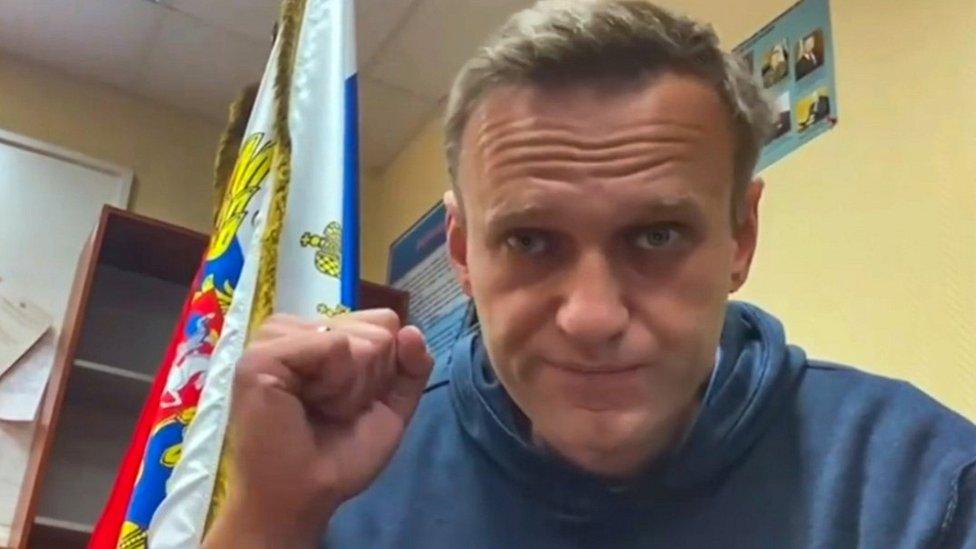
- Published4 February 2021
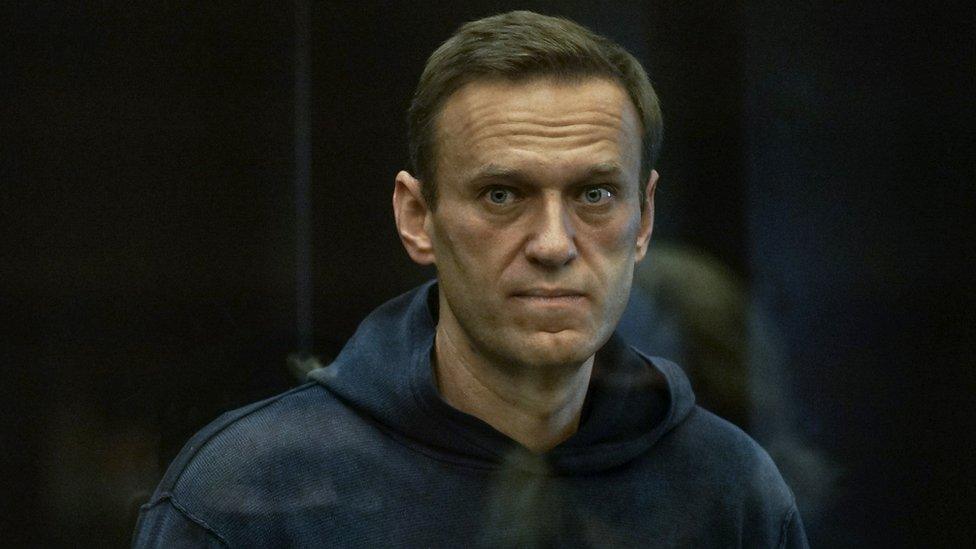
- Published15 April 2021
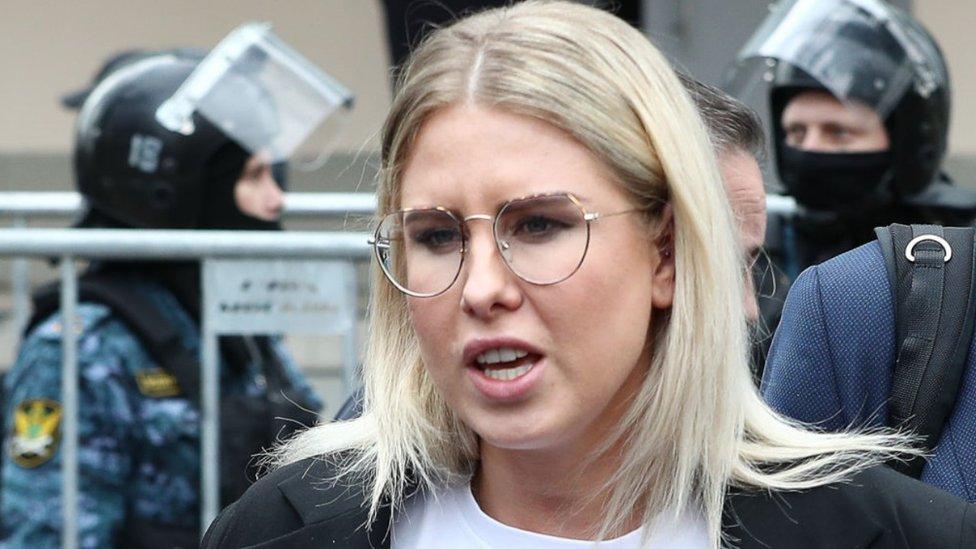
- Published14 February 2021
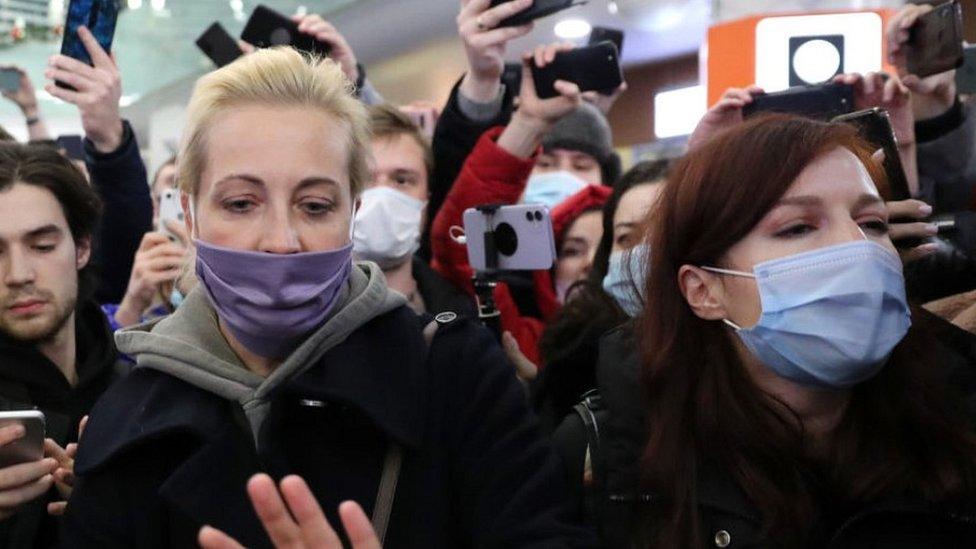
- Published20 January 2021
